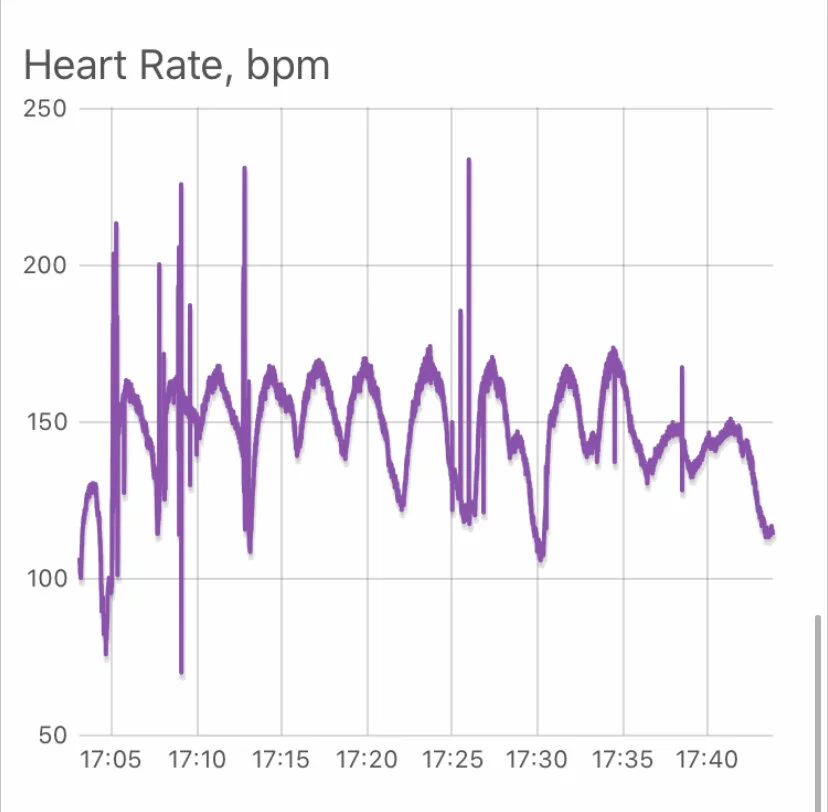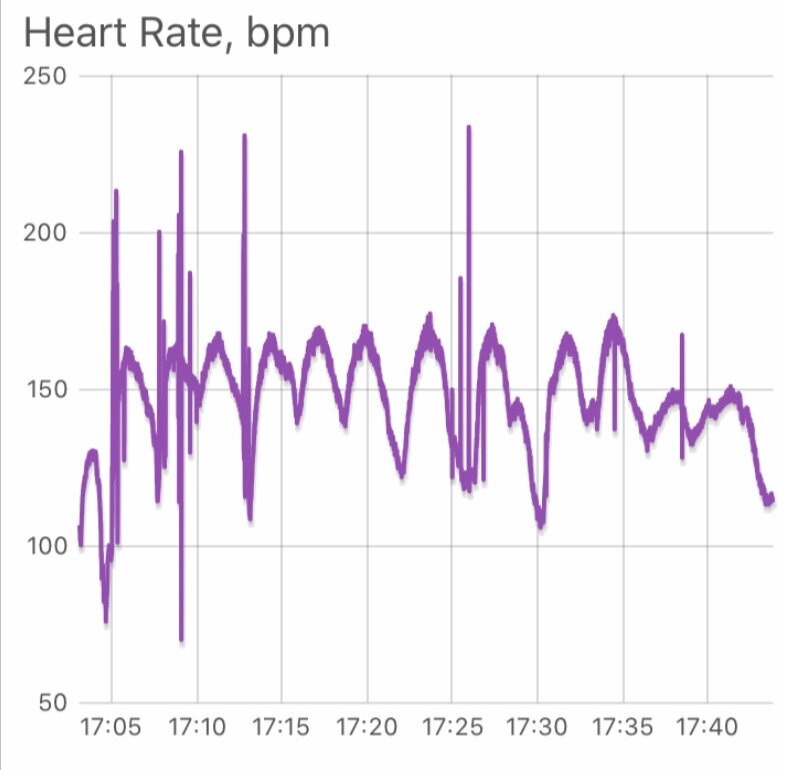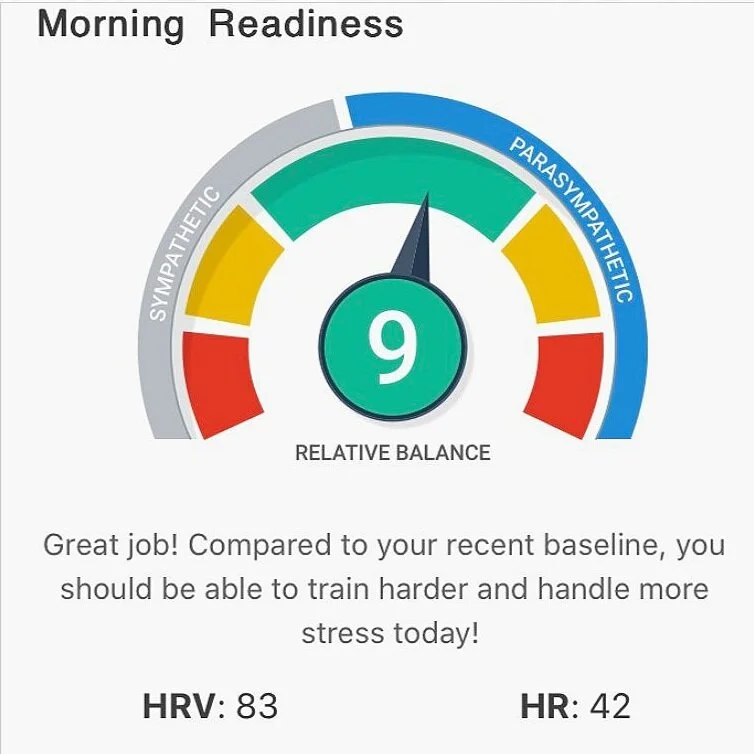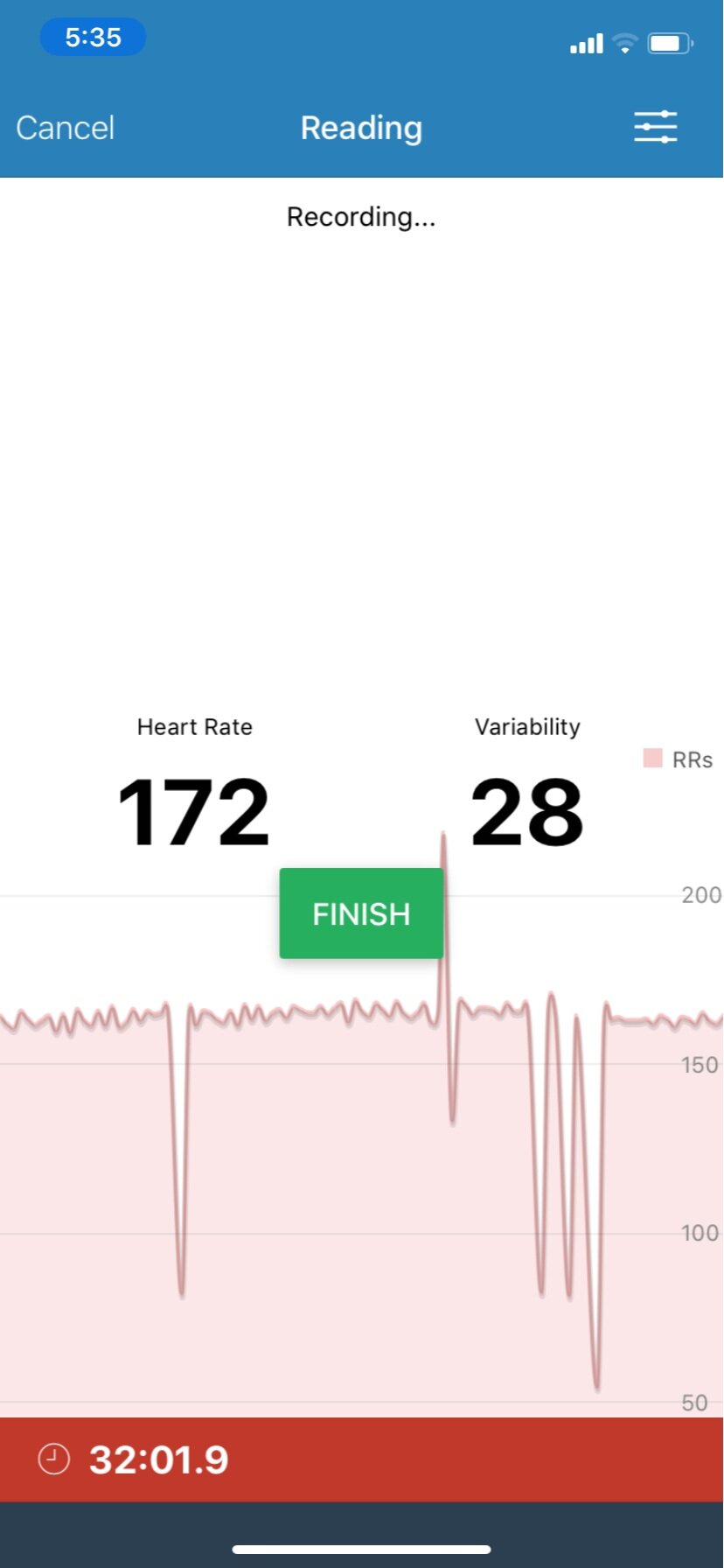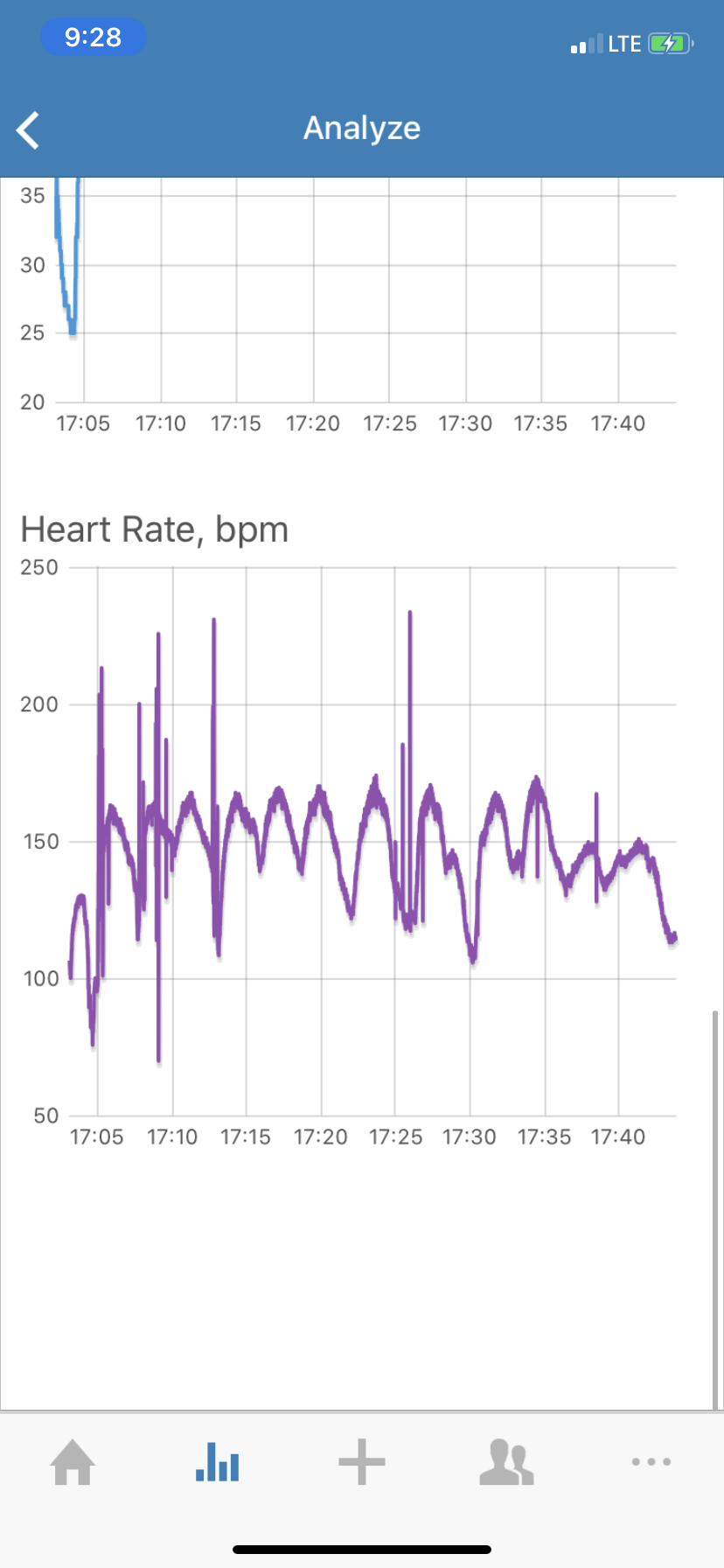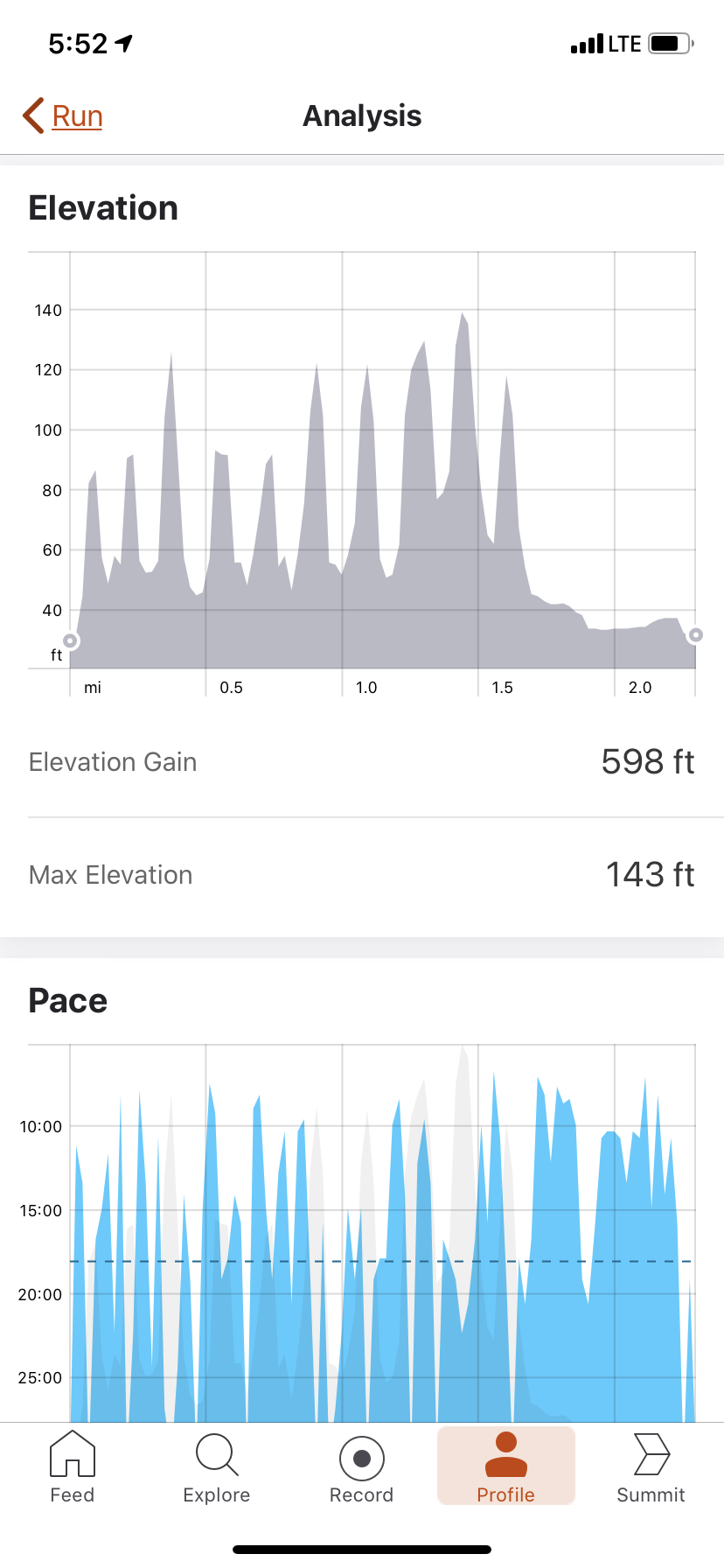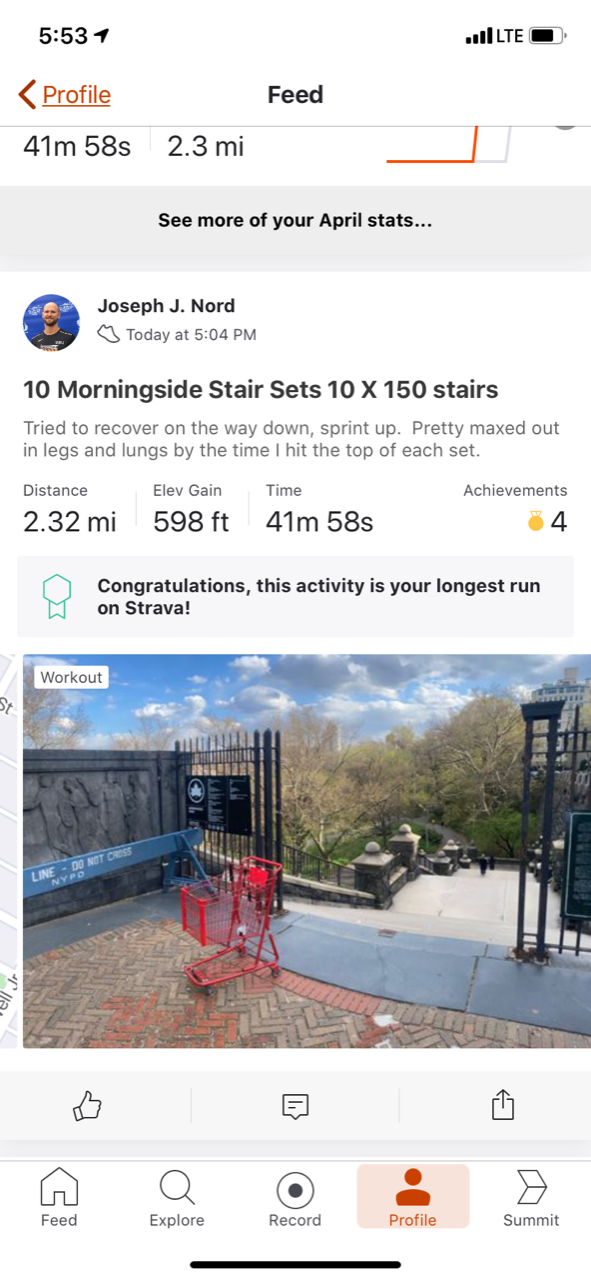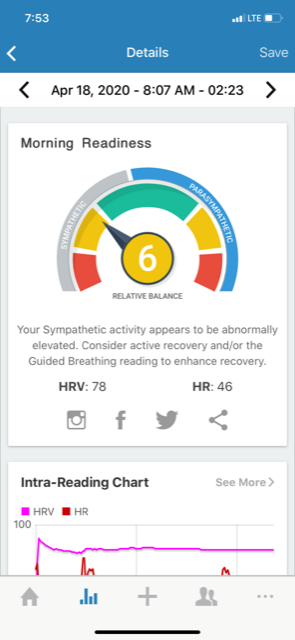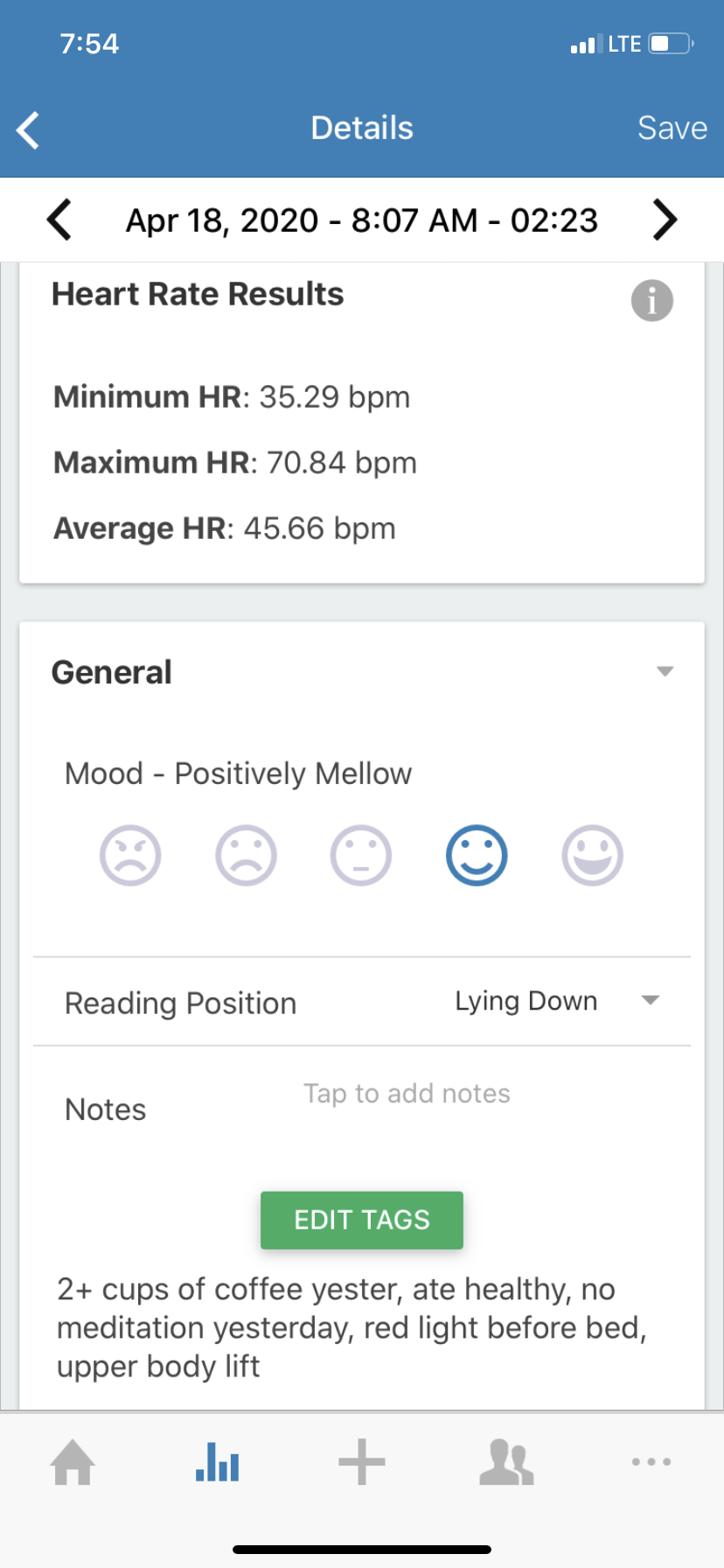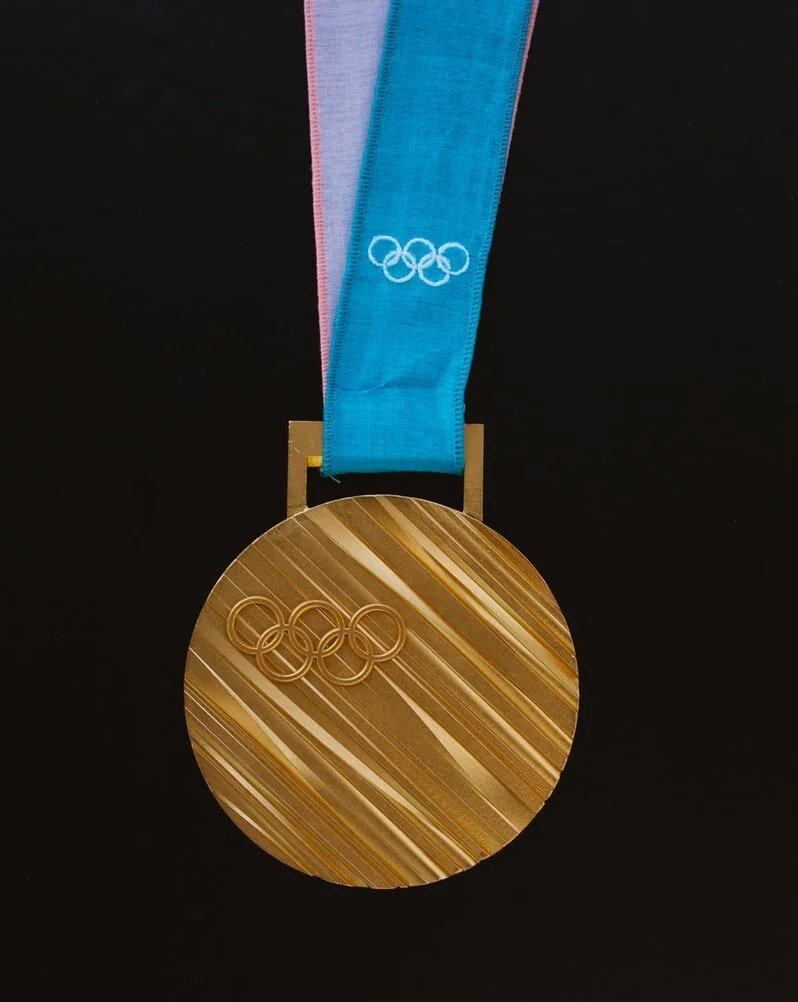What Heart Rate Variability Can Teach Elite Athletes, Drinkers, Smokers, & Zen Masters
Heart rate reading from a stair workout: 10 sets of sprints up 150 stairs, correlating to the 10 peaks on the graph.
“there are… all kinds of interesting questions which the science knowledge only adds to the excitement, the mystery and the awe of a flower.” – Richard Feynman: The Pleasure of Finding Things Out
Feynman is not a botanist, he’s a Nobel Prize winning physicist. And he isn’t telling us about flowers, he’s describing how science can be used to make our lives more captivating. By placing our daily routines and repetitive workouts under the microscope of science, we reengage with them in a deeper way. Heart Rate Variability is a scientific measure we can utilize to do just that.
Since HRV relates to the central nervous system, it estimates the current condition of both our mind and body. This Article from Elite HRV explains the concept:
"Since training load and life stress load have a similar impact on the body’s resources, having an objective measure of the total picture can be very useful."
HRV is one of the best measures of total health and fitness. Check out this article to see where you stack up against your age group. To give you an idea of how widely applicable HRV is, here are a few studies that I consider very intriguing, along with my brief summary of their findings:
My Morning Readiness score. Relative to my personal baseline, I am ready to train hard and take on my goals.
Cognitive Performance and Heart Rate Variability: The Influence of Fitness Level - This is a very applicable study to high school or college athletes under high cognitive loads. The study had participants perform a number of cognitive tests on a computer and found that this cognitive load caused significant reductions in HRV. The study also concluded that participants who were more physically fit to begin with, saw less deterioration in HRV from the same cognitive workload as the less-fit participants. Being physically fit appears to improve cognitive work capacity. No more dumb jock stigma! How might cramming for that test hurt your athletic performance?
Alcohol: impact on sports performance and recovery in male athletes. - This study found that consuming 2 alcoholic beverages a day had little impact on HRV but when that number went to 4 or 6 drinks, HRV suffered by 10%-25%. HRV declined with increased weekly alcohol consumption, so even 2 drinks a night can add up. HRV can detect your hangovers!
A single 4 mg dose of nicotine decreases heart rate variability in healthy nonsmokers. - FYI 4 mg of nicotine is roughly equal to 2-3 cigarettes or about 1 chew. This study concludes in a powerful way that ‘‘A single dose of 4 mg oral nicotine produces a significant reduction in HRV” Obviously worth considering for those who vape, chew, or smoke.
Inward-attention meditation increases parasympathetic activity: a study based on HRV - This study showed an improvement in HRV from inward-attention meditation, which is different than common forms of controlled-breath meditation. There are a number of other studies which support the concept that meditation improves HRV. My takeaway: Mindfulness and meditation can help you recover faster. Improving your performance mentally, physically, and emotionally.
Heart Rate Variability (HRV) Biofeedback for Anxiety - This article discusses a study involving 75 correctional officers which discovered significant benefits in mental well-being using HRV biofeedback. Mental and emotional health has been a subjective science, allowing some to disregard it. Now we have objective measures that can help us acknowledge and improve our state of mind. What could you learn about your mental state with HRV?
Clearly alcohol & late nights impact your ability to train & feel healthy. This was my HRV & HR Morning Readiness score the morning after a friend’s wedding reception. Hard to ignore the effects of alcohol when they are this objective!
Just a few years ago, HRV was mostly limited to elite athletes and physiologists who had access to the ECG electrodes and computer programs needed to measure it. Fortunately, the last few years have led to significant improvements in HRV technology, allowing us to measure and record personal data with relative ease. Using the Elite HRV App, I have learned a great deal about the impact my workouts and my lifestyle have on my physiology.
As a note, the app itself is FREE, but you will need to buy a Heart Rate Monitor. The HR/HRV strap linked is compatible with the Elite HRV App as well as most of the other heart rate apps and cardio machines you will find. So it's pretty universal.
Example of HRV in My Workout:
The four screen shots below were taken during and after a single workout session. I would consider this particular workout to be High Intensity Interval Training (HIIT) since, as you can see by the center two graphs, my energy output, heart rate, and elevation had a number of peaks and valleys (intervals). I was essentially sprinting on the way up the stairs and resting on the way down.
From left to right: The first screen shot shows a real-time measurement of my heart rate at the top of my 10th set of stairs. At that point I was hands-on-my-knees-panting-tired. Your maximum heart rate (calculate here) depends on several factors but primarily age, physical condition, and how recovered your nervous system is. The two center screen shots depict my 10 individual sprints to the top of the 150 stairs, correlating to the 10 distinguishable peaks on the graphs. The two screen shots on the left are of the Elite HRV App, while the two on the right are from an app called Strava. This is another FREE app that allows you to track, store, and share the route of your workouts. I don’t use Strava to monitor my HR or HRV but I thought it would provide a better understanding of the relationship between my workout and the Elite HRV App. As you can see, we can gauge, pinpoint, and track the intensity of our workouts using HRV.
Using HRV to Understand Mental, Physical, and Chemical Stress:
Within the HRV App there is a feature called “Morning Readiness”. This feature requires the user to take a 3 minute reading of their HRV upon waking up. By doing this, a personal baseline is created which allows you to estimate how prepared your CNS is in facing all forms of stress, from working out, to taking a final exam or giving a big presentation. Again, because the central nervous system encompasses both brain and body, we can learn how psychological stress and recovery is impacting us.
I have found that my HRV Morning Readiness scores correlate strongly to the way my body and mind actually feel. On days when my score is very low (perhaps from intense training or enjoying a few cocktails the night before), I typically experience lower energy, motivation, and mental clarity. On days my score is high, I feel motivated, excited to train, and to engage in cognitively rich activities.
The app allows the user to create and add ‘‘tags” to each reading. By doing this you can begin to see how different lifestyle factors affect your body’s state. There are examples of the tags I have been tracking in the screen shots below. Other forms of stress and recovery that I track and might encounter are: alcohol consumption, vitamin and mineral consumption, unhealthy eating, sleep quality, sun exposure, and highly emotional days. The Elite HRV App will automatically run statistical analysis on your tags to show you which factors are influencing you most.
From left to right: The screen shot from April 18th is my “morning readiness” for that day. You can also see the numeric HR and HRV measurements associated with it. The second screen shot, also from April 18th, shows the tags that I selected which are mostly related to my lifestyle the previous day. The third and fourth screen shots are the same as the previous two respectively but indicate both a different morning readiness score and a few different tags.
The app provides helpful recommendations based off your Morning Readiness score. On April 18th, my personal readiness was a 6 out of 10, to which the app suggested “active recovery” and “guided breathing” to help me rebound. On April 22nd, my readiness was a 9 out of 10, to which the app empowered me to “train harder and handle more stress”.
I have also purchased and use the Corsense finger sensor for my morning readings since putting on a chest strap in the morning is a bit of a pain. The Corsense finger sensor is comparable in accuracy to a hospital grade 5-lead EKG/ECG for HRV, so I can be confident my measurements are accurate.
Conclusion:
Whether you are an elite athlete, hard core techie, smoker, drinker, or zen meditator, HRV can help you understand both stress and recovery.
The idea is not to avoid stress. Stress is often good, since it can indicate that you are living life and challenging yourself. But chronic stress is a well-known cause of underperformance, illness, and premature aging. This information can signal that our tank is full and we are ready to chase our goals and ambitions. It can also help us manage challenge more affectively by alerting us when active recovery and personal care are needed. Since the app can help motivate us to improve our recovery modalities, it helps us get back to hard training and high performance faster. Repeat this over long periods of time and it will compound big results.
You can only train as hard as you recover.
Importantly, by tracking our HRV for a period of time, we begin to connect our physical feelings of energy or fatigue with the corresponding HRV scores. By using the science technology as a guidepost, we develop and strengthen the intuition that allows us to eventually understand not only HRV but ourselves.
By: Joe Nord
If you found this helpful, please share. If you enjoyed the read and want to get notified of future posts, sign up below! Don’t worry, we won’t flood your inbox with unnecessary or excessive emails.
I have no affiliation with any of the applications mentioned in this post.
